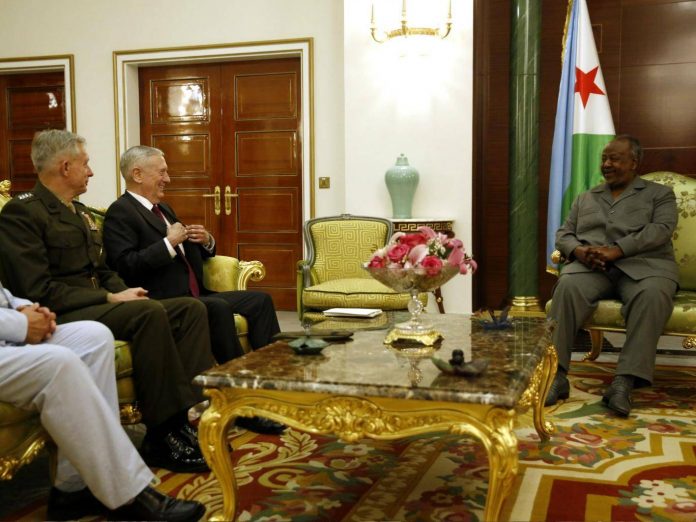The US military’s Africa Command is reworking its strategy to take into account China’s growing strength on the continent
The top US general for Africa Command (Africom) said themilitary could face a “significant” ramifications if China takes control of a port in Djibouti.
Marine General Thomas Waldhauser explained during a HouseArmed Services Committee hearing that the port was important for re-supplying the US base in the country as well as a fuelling stop for Navy ships.
However, the Doraleh Container Terminal, along the Red Sea, may have been nationalised following a government dispute with the Dubai-based company which ran it in order to give control to China.
China has already built a military base in the small east African nation because of its geographic importance as a route to the Suez Canal.
Djibouti also hosts approximately 4,000 American personnel, including special operations forces. It also serves a launch pad for operations in Yemen and Somalia.
While “China has been on the African continent for quite some time…we as a combatant command have not dealt with it in terms of a strategic interest,” Mr Waldhauser noted, adding that China could place limits or burdens on US supplies that come through the port.
“We are taking baby steps in that regard,” he said, adding that he is in the process of re-writing US military strategy in order to take China’s growing muscle on the continent into consideration.
Part of the issue was brought up by Republican Representative Bradley Byrne in a letter to Defence Secretary James Mattis.
Mr Byrne wrote about how the government Djibouti may have conducted an “illegal seizure” of the port from the Dubai-based company DP World, which is pursuing the matter in the London Court of International Arbitration.
“What is to say that government wouldn’t illegally terminate our lease before its term is up,” Mr Byrne wrote.
Mr Waldhauser said China may be looking for more locations and ports to control in the near future.
China has made strides on the continent by providing aid in the form of infrastructure investment and, to a certain degree job creation, rather than traditional forms of food, medical, and economic aid many African nations have had to take from Western countries.
The government also pledged a $124bn investment to connect Africa, Asia, and other ports through its Silk Road initiative.
Mythili Sampathkumar New York @MythiliSk































